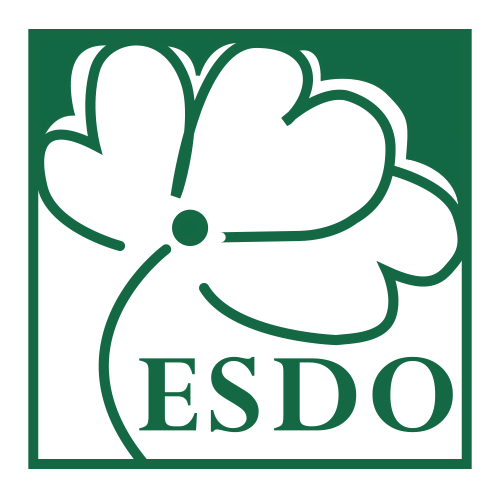IMPACTS
ESDO is the Pioneer Organization to Ban Polythene form Bangladesh in 2002
Environment and Social Development Organization – ESDO conducts consultations, webinars, workshops and meetings with government agencies, relevant stakeholders, project partners, industrial associations, health professionals, and multi-sector groups of people about the adverse effects of lead in paints and mercury in consumer products, dental amalgam and other hazardous toxic metals. Dialogue with policymakers, press briefings, mobile campaign policy, social media campaigns, and lobbying with the Governmental body are regular activities of ESDO. Awareness raising and educational campaigns are conducted among dental students, volunteers, researchers, green club members, and practitioners for eliminating lead in paint and mercury in dentistry.
ESDO has led several discussions and consultation sessions with BPMA regarding the second lead paint test and developed draft regulations for standard level of lead in paint up to 50 ppm and complete elimination of lead in 2015-2016. ESDO submitted a request letter jointly with BPMA for the standard level and BSTI also approved the request of enacting permissible limits of lead in household paints. Every year, since 2013 ESDO collect different brands of both decorative and industrial paints and send them to their international network for testing the lead concentration in those paints. Based on the results, ESDO does advocacy with policymakers almost every year during the International Lead Poisoning Week (ILLPW). During this, ILPPW ESDO involves its youth network to raise awareness of lead poisoning and grab the attention of the policymakers. These continuous advocacies and campaign resulted into standard for the lead content in decorative paint which is 90 ppm, set by BSTI.
ESDO’s General Secretary Dr. Hossain Shahriar, Executive Director Siddika Sultana and its Chairperson had a meeting with the Ministry of Environment and Forest where the draft guidelines and petition submission on lead in paints were handed over to them.
Under the guidance and direction of ESDO’s Secretary General, Dr. Shahriar Hossain, ESDO organized a nationwide anti-polythene campaign in 1992, which involved the media and was supported by numerous organizations and public leaders. In 1999, the Ministry of Environment and Forest recognized the anti-polythene campaign as the most important national movement, while in 2000, the Ministry of Environment and Forest selected ESDO as the principal task force representative in pushing for a complete ban on polythene bags. ESDO received worldwide recognition for its commitment and for the success of the campaign – Australia, India, Pakistan, the United States of America, Japan, and European countries, have since either recognized or followed ESDO’s initiative. Every year on 3rd July anti polythene day is celebrated worldwide. Bangladesh is the first country where polythene bag has been banned. A major role behind it was played by ESDO. Like every year ESDO celebrated anti polythene day on 3rd July 2015. ESDO is regularly continuing its anti-polythene campaign through SMS campaigns, social media and website content updates.
A baseline study, field survey, direct interview, documentary, and case study were conducted to estimate the level of awareness of general people about mercury in consumer products. It has developed several IEC materials and distributed them in print and electronic media as a part of the educational program. ESDO developed two study reports based on Mercury containing products in Bangladesh and made an Annual Report in 2014. New posters, stickers and new festoons have been developed under the Mercury project in association with UNEP to spread the message of the health hazard of mercury. ESDO and United Nations for Environment Program (UNEP) jointly organized a workshop on “Reduction of the use of Mercury-containing Products in Bangladesh” on 17th December 2015.
The government personnel responded very positively to this issue. They expressed their eagerness on ratifying Minamata Convention. The recommendation and guideline ESDO provided on the study report the government personnel expressed interest in creating a model guideline based on it. The national dailies paid ample heed to the workshop by reporting the event.
ESDO has effective social media campaigns through Facebook, YouTube, and Twitter on projects like, Lead Paint Elimination, Mercury Free Dentistry, Asian Center for Environmental Health, gender transport safety, WISE Bangladesh, Eco-tourism, and Zero-waste Village. ESDO successfully caught huge attention with its awareness and study programs. Several TV and radio programs were aired which mentioned statistics disseminated by ESDO.
A report on SAICM – Strategic Approach to International Chemicals Management was done on 10th July 2015. Representatives from ESDO have been participating in International Chemical Management from time to time to contribute to reforming the law in Bangladesh.
On 6th January 2020, ESDO along with 11 other organizations filed a writ petition to the High Court Division for banning single-use plastic products in coastal areas, hotels, motels and restaurants across the country in one year as they are health and environmental hazards. This case is under trial and meanwhile, High Court Division ordered to phase out single-use plastic by 2023.
To create a zero-waste community for a pollution-free environment in Bangladesh in 2020, ESDO undertook a novel effort. In order to compost kitchen waste, 145 backyard twin pits were installed by ESDO as part of this project in Betgari and Rangpur. This gave the locals the tools they needed to manage their garbage and lead a waste-free lifestyle. Over 60 people in Rangpur and Betgari now have jobs due to this initiative of ESDO. Instead of using chemical fertilizers, individuals are making compost, which is utilized in farming to preserve the soil and the crops in a toxic-free way.
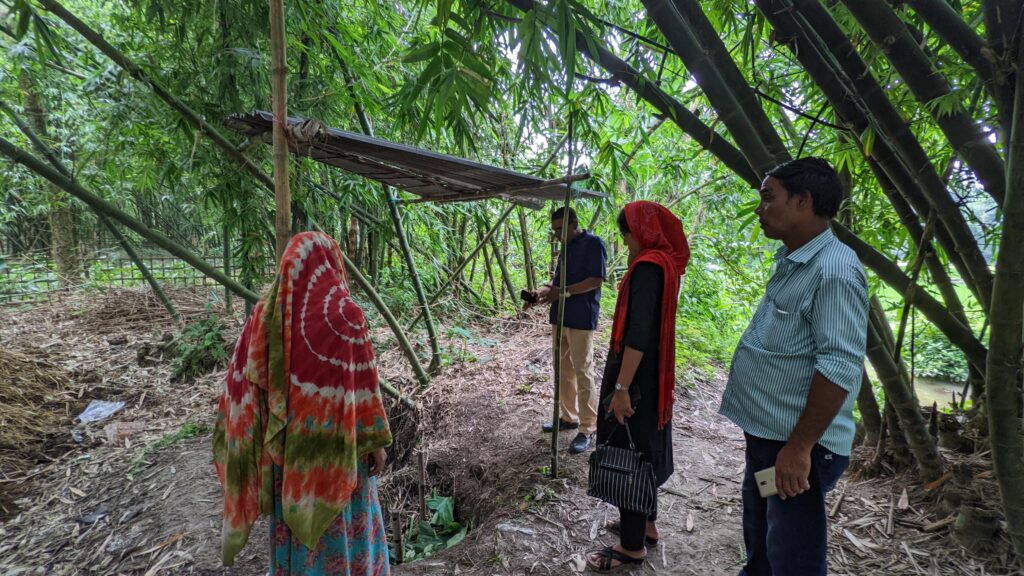
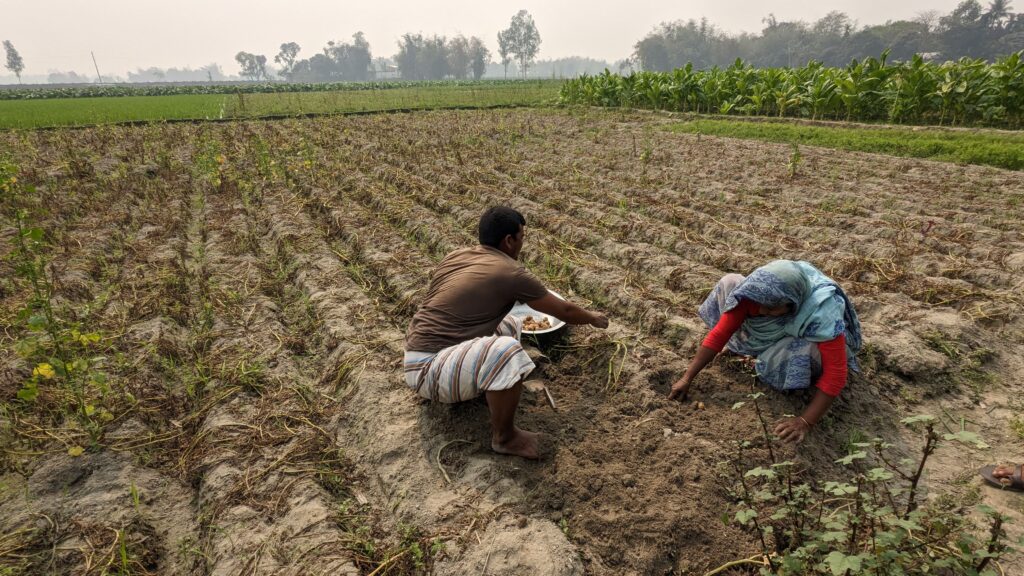
The ESDO contributes significantly to the empowerment of young people. With the aid of ESDO, schools and students are implementing projects to reduce the pollution caused by single-use plastics. For this initiative, ESDO and partners chose 10 schools from five divisions of Bangladesh Dhaka, Rajshahi, Khulna, Sylhet, and Rangpur divisions. ESDO has already built capacity with seven schools and 350 students. These children have adopted the 4R strategy (Refuse, Reduce, Reuse & Refill), which has helped them live a life free of plastic and practice a zero-waste lifestyle. They have formed clubs to regularly clean the school’s premises.
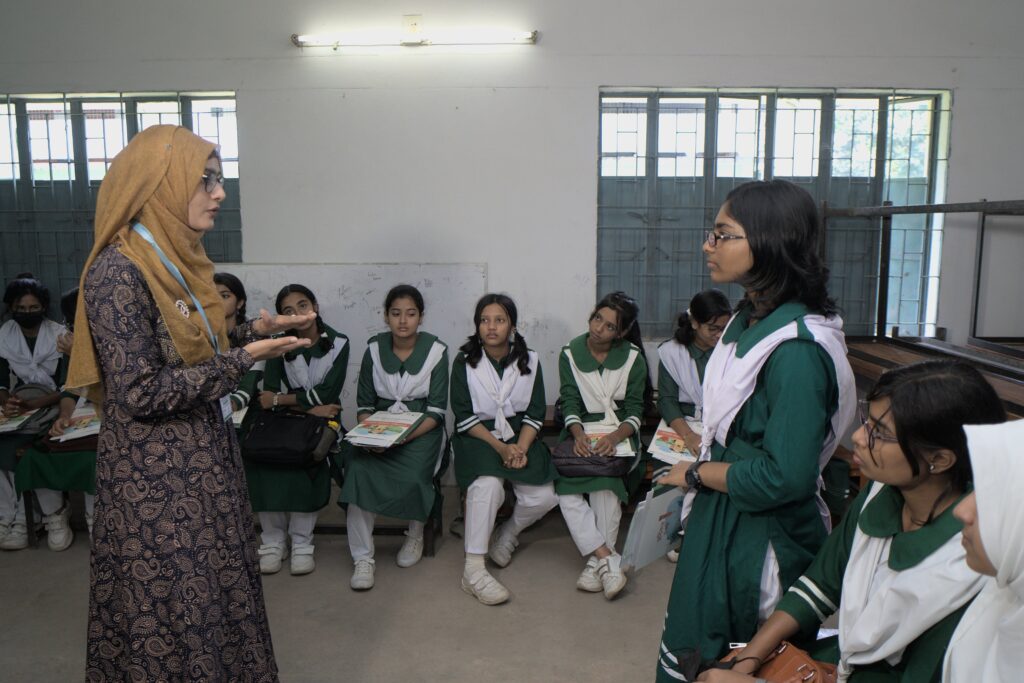
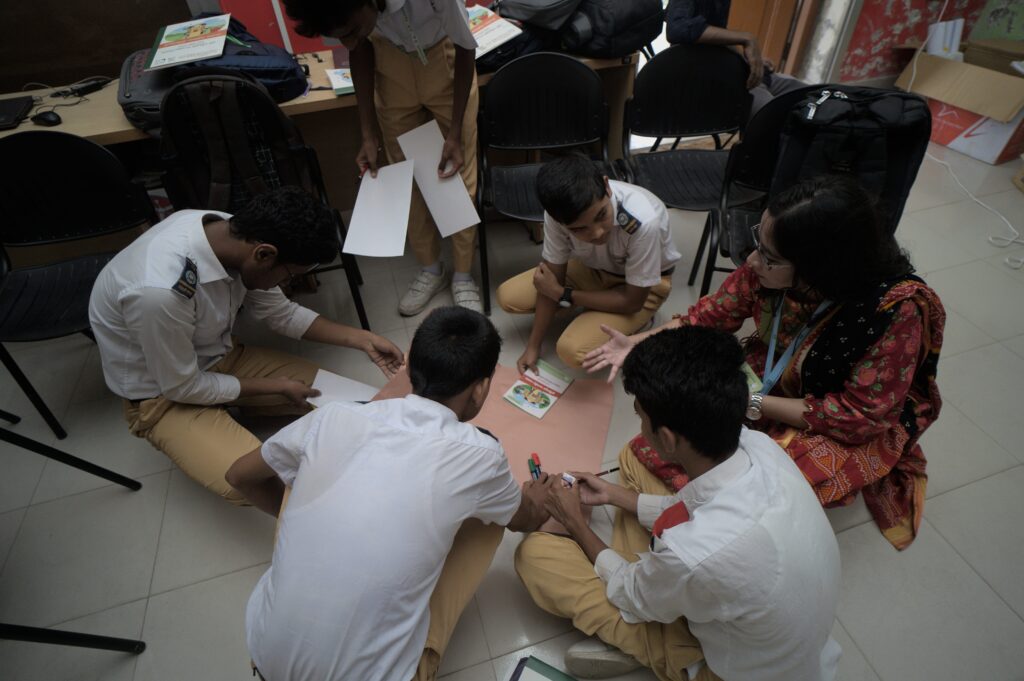
Our Achievements
Elevated environmental consciousness amongst the young generation regarding plastic pollution.
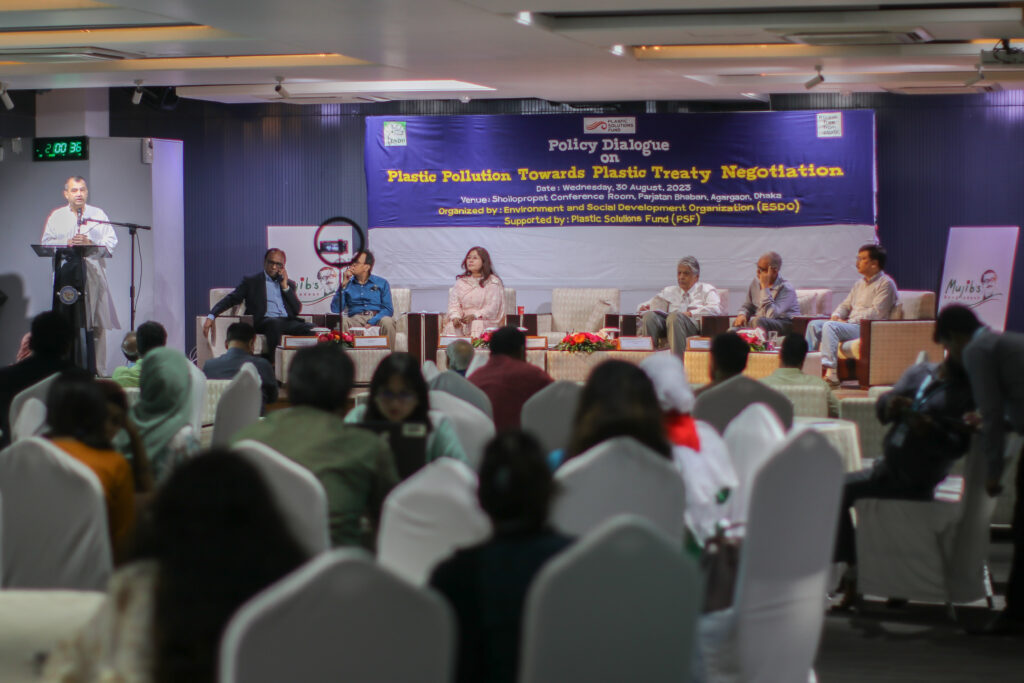

plastic Free Campus
Established 10 schools across 5 divisions in Bangladesh, promoting plastic refusal and alternatives.
Reduced Lead in Paint
Advocated for a rigorous policy, restricting industrial paint lead content below 90ppm.
Mercury Free Dentistry
Promoted mercury-free dentistry and minimized mercury utilization in the dental practice.
Zero Waste Community
Built a zero-waste community in Rangpur, adept at transforming waste into valuable resources.
Impact Areas
ESDO drives change through creating awareness among the youths, continuing policy advocacy and ensuring gender equality. Plastic-free campus, below 90 ppm lead in paint, zero-waste communities, and mercury-free dentistry, are some of the influence areas of ESDO.
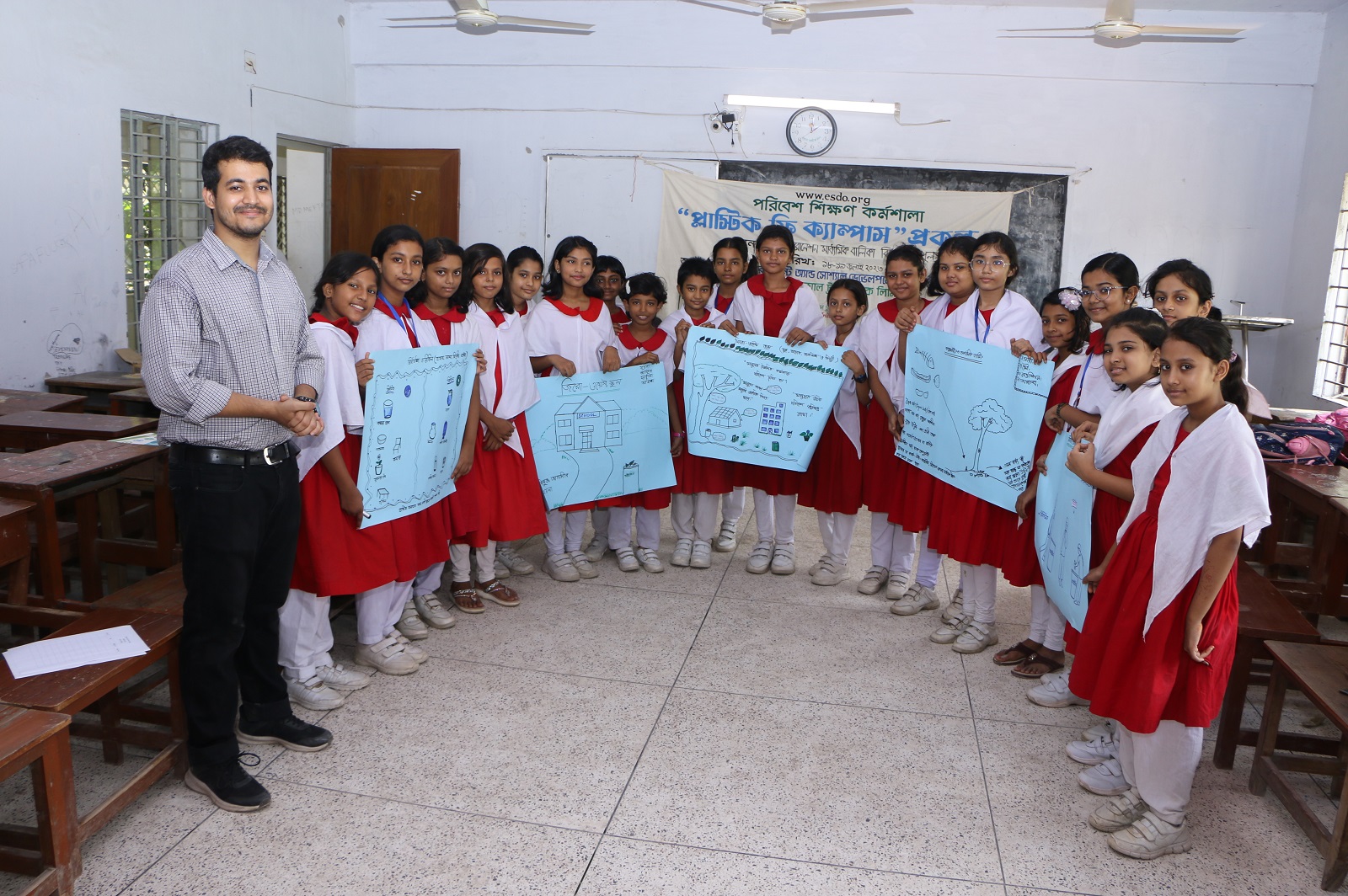
Plastic-Free Campus
Raised awareness among 1000+ students about plastic pollution and promoted 10 sustainable alternatives.
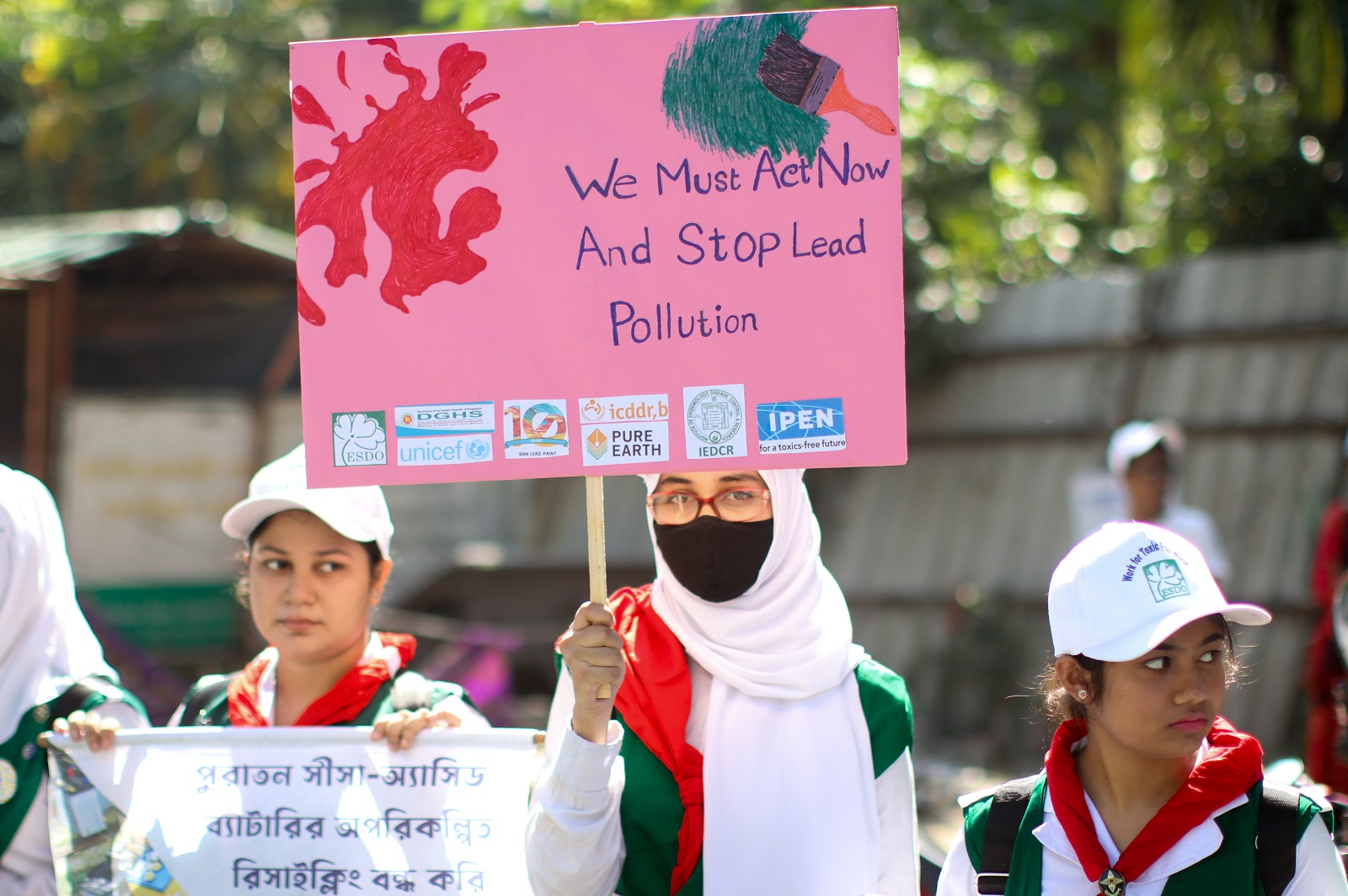
Ban Lead Paint
Limited lead concentrations below 90 ppm in industrial paints through continuous policy advocacy.
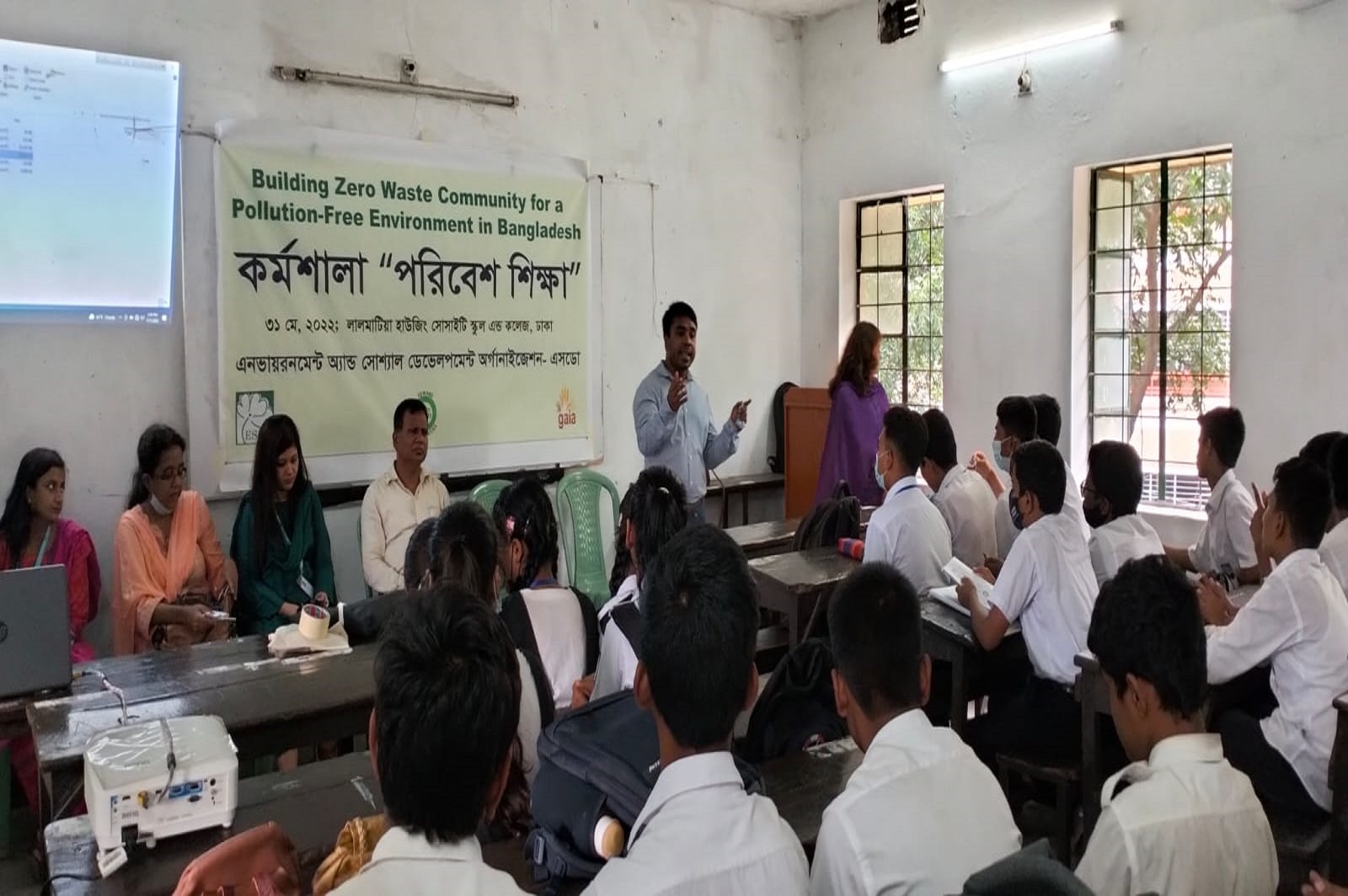
Zero-Waste Lifestyle
Provided training on making waste into resources and helped 20+ families in Rangpur live a healthy and sustainable life.
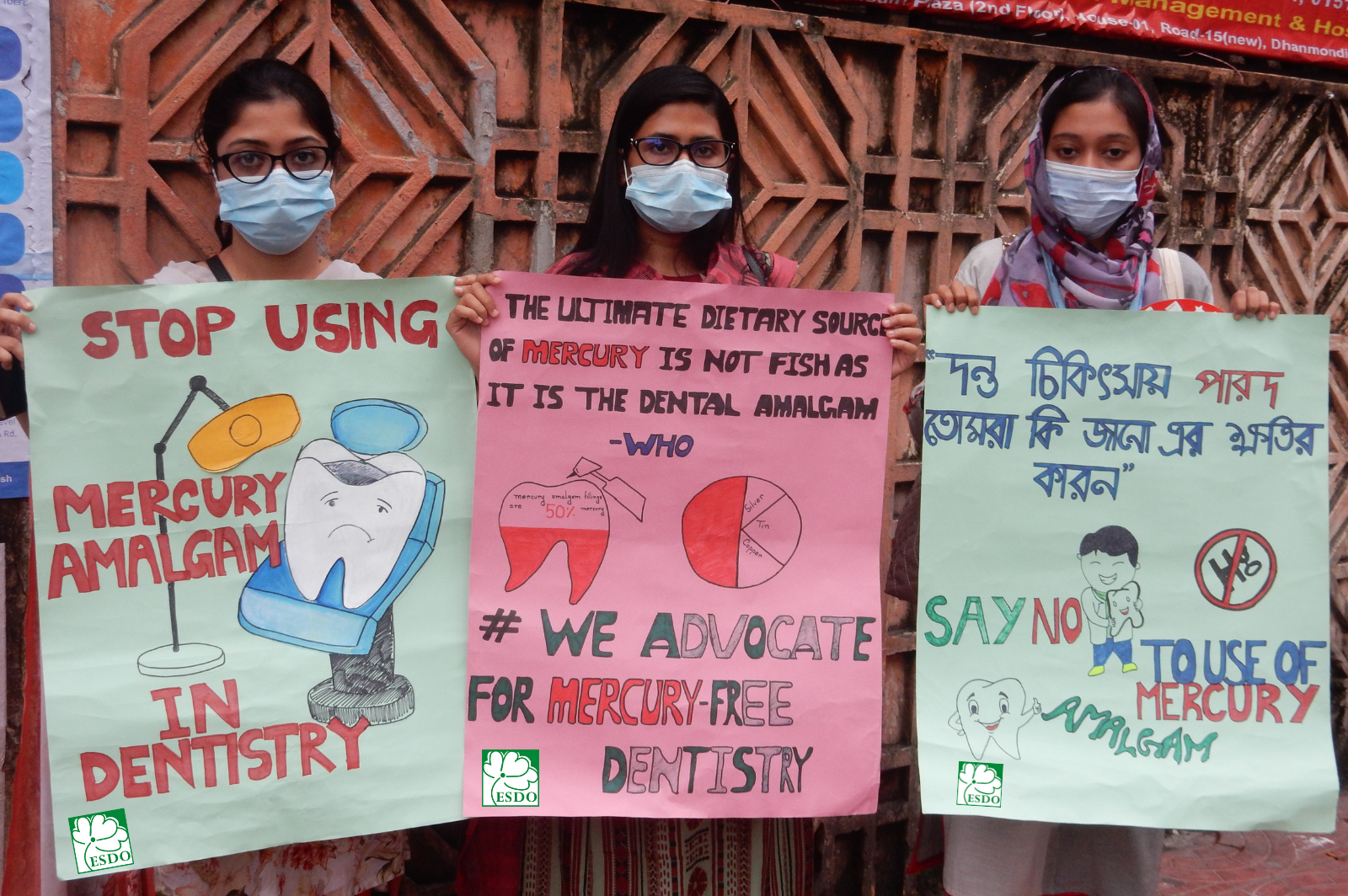
Mercury Free Dentistry
Instead of amalgam fillings, we ensured safe, biocompatible materials in dentistry, which reduced env. and health risks.
